Few directors have been accused of letting down fans so spectacularly as Oliver Stone for his epic box office flop Alexander. And the disappointment was made all the greater for our initial high hopes. In November 2004, when the theatrical release of Alexander was announced, the Gay and Lesbian Alliance Against Defamation issued a statement praising the film: "For a big-budget Hollywood movie about historical figures, Alexander breaks new ground. Not only are there sexually charged moments between Alexander [Colin Farrell] and Bagoas [Francisco Bosch], but Hephaistion [Jared Leto] is clearly portrayed as the true love of Alexander's life--and their romance is one of the central themes of the movie."
In concept, yes, it was great. But in reality, there were problems. First, the accents--Jared Leto's Irish brogue; Angelina Jolie's nasal Romanian, which sounded like an ancient precursor to Natasha from Rocky and Bullwinkle. They seemed out of place and confounded audiences who expect the King's English from their epics. There was Colin Farrell's hated blond locks that apparently no one bought. And of course there was that whole gay thing. It is widely believed that Warner Bros. blamed the film's poor domestic box office--roughly $34 million for a film that cost $155 million to make--on Stone's inclusion of Alexander's much-debated homosexuality.
Facing the biggest disappointment of his career, Stone retreated in his 2005 DVD Alexander: The Director's Cut, paring the film down from 176 minutes to an apparently more digestible 167 and specifically cutting some of the few references to Alexander's sexual relationships with men. GLAAD and LGBTs turned on Stone for what amounted to nine minutes of footage and for describing his new version as an attempt to make the film "more accessible." The blogosphere erupted in outrage that such a champion of the truth (JFK, Nixon, Born on the Fourth of July) had found the one truth he was not willing to stand behind. That was pretty much it: Stone had lost, the studio had won, and the movie would forever be a blight on his career and a sore spot for his gay and lesbian fans. That is, until this week, when Stone and Warner Bros. release yet another version of the belabored epic, Alexander Revisited: The Final Cut.
I must admit that I have been a champion of the film since the beginning. It's not his best effort technically or otherwise, but I have always applauded such audacity. After all, how can one film capture the life and legend of history's most influential leader? We are talking about a man who united the world for the first time, bringing together disparate cultures across continents. And for us, capturing the world's most famous homosexual, bisexual, or queer (call him what you may) sets the bar even higher. No matter what you might think of the film, Stone proves his similarity to Alexander: "His failures tower over other men's successes," as Ptolemy says.
I reached Stone on the phone as he was driving from one appointment to another and gave him an opportunity to put the Alexander outcry to rest. He sounded enthusiastic to talk about a film that most of the country, and surely the film industry, would just as soon forget. In the beginning of the third and final version of the film, Stone tells the viewer that this is the film (all 220 minutes of it) that he intended to make all along. And still, Stone is not completely at peace. In our interview he laments the limitations of the American film audience and our inability to accept the story.
So have you been doing a lot of interviews for this DVD yet? No, you're the first one. I'm surprised you saw it so quickly.
I've been tracking it for a while, trying to get my hands on it. I got it on Saturday and watched it on Sunday. I think [The Advocate] is an important publication.
Did the original theatrical release of Alexander turn out the way you wanted it? The first version that [audiences] saw was the theatrical cut of two hours and 57 minutes, which was the best that I could do. I was held to the limitation of it being handled in two hours or less. That was sort of the unwritten rule, it was in the contract to some degree...people won't tolerate the 3:20 or 3:30 movies anymore, and certainly they don't encourage intermissions anymore.
When it came to Alexander's sexuality, do you feel that some of that had to be sacrificed for the run time in order to get everything you wanted in? I cut the movie I wanted. I blame nobody, but there was tremendous negativity toward the Bagoas character from people.
What kind of people? American people, not European people.
In this version there's a lot more screen time with Bagoas added. The story that we shot is allowed to play out, and it shows, to me, a more tender side of Alexander. He really liked Bagoas, and I think there was a class difference. But there was a different relationship between Alexander and Hephaistion...I never felt that he and Alexander were lovers after youth. I felt that they had a bond created from their youth that was indestructible, but I don't think they continued that relationship.
Not a sexual relationship like Bagoas? Bagoas was the main one in Alexander's life.
So in the scene where Hephaistion asks, "I could spend the night?" was that-- It was more of "Spend the night with me; I miss you." Like friendship. "I want you to be here, and I have problems that I want to talk about with you."
Right, but do you view theirs as a love story? I really felt that, when I saw your first construction of Alexander, theirs was the love story of the movie, more than any other person in his life. It was the love of his life in that sense of the word. When [Greeks] made love they kept very straight about it [in terms of its sacredness]. With the passing of sperm was the passing of wisdom, literally, so that's why the older man always took on the younger man, to pass on his wisdom. And what happened between Alexander and Bagoas, it wasn't old men, it was equal. It was different. It was more like a modern version. But [Alexander and Hephaistion] had a profound love. They had a...what's the word in Greek? It's not eros, it's...agape. It was love of wisdom too. And they had a relationship, and when Hephaistion died, Alexander had the greatest funeral ever seen that we know of in the Greek world up until that moment.
It is very complicated to make a movie completely from the Greek paradigm of homosexuality, where there is no "gay," and then try and make a modern audience who live in very rigid ideas of sexual identity accept it.
Did you anticipate any of the problems of a modern take on an ancient idea? I was hoping that people would move on and be sophisticated about it. I was surprised by the degree of loudness over the homosexuality...I think it's shocking, especially when it's tied to military men. And I felt that on many levels in this country. Not in Europe, we didn't feel it there. But I'm really proud of [Alexander Revisted]. I think it's the right version because it wasn't truncated for theatrical releases. I know the fact that we can't do 3 1/2 hours anymore in theaters.
I know. I loved that in this version you put in an intermission. I spent a long time writing and researching it, and the material value was worth [an intermission], like an epic. In the epics that I grew up on, you had an intermission at the two-hour mark and an hour-and-a-half second part, and it worked. It wasn't just Lawrence of Arabia; there were dozens and dozens of films like that. I don't know when you grew up, but in the 1950s--
Even Giant had an intermission originally. Many, many, many. Bad ones and good ones, but it was an experience, and it was understood. It's not like the theater is today. People have accepted it. I think they need a little time to think about it, talk about the picture, give it time. Then they go back after 20 minutes, after having a little rest, and then you watch the second part, which is the resolution, and usually that would be faster.
That's the beauty of DVD, though. You can make it as long as you want. And maybe it is all necessary. So many people had problems with Colin Farrell in the movie, but in this version he gets all these additional great scenes, like the scene with Bagoas at the end, when he is dying and you really see his affection for him. And the scene in the tent with Hephaistion and Bagoas, when he has just killed Cleitus and he is at his weakest, and you see they are the only ones he can trust and rely on. Both those scenes add an amazing amount of depth to Colin's performance. And I cut both of them. I had to really cut them down, and I think that I hurt the perception of Colin. I think he did a really great job, I really do. I think it's a career-defying role, and I'm sorry that he was looked poorly at because of his partygoing behavior...I think he was unfairly and harshly treated.
So you had your original version in the theater, and then you did a director's cut DVD, and there was a lot of controversy about you toning down his sexuality. There was, but I think that it was misunderstood. I said to myself, Well, you have to cut this movie down anyway, and [the studio] is a major factor in this release. [They] control America plus several major territories, so I said, Look, if it makes them happy if there's no transsexual in this movie... [laughs].
But frankly, the Bagoas story is a beautiful story. I love it. It tells the story of Alexander, but is it really essential to the plot? I suppose not. That's part of the fidgeting that goes behind the theatrical release. You have to get to the point.
And even when you put Bagoas back in, there really isn't any explicit sexuality--it's more of an intense kiss in bed. There isn't a sex scene per se, like there is one with Rosario Dawson's character. What's the thinking behind that? It was a dramatic choice, because I felt that if he had been with [inaudible], then he had been with Bagoas in the...it's a question of timing, it's a question of pace. At the point in the movie when [inaudible] and I hear a cut, Alexander's continuing journey with his conspiracy of overthrowing Parmenion and you see the new cut where he's [inaudible] Bagoas. It's the function of pace. It didn't call for a sex scene at that point. The pacing was not such that it was cost-cutting, but I wanted to make it tender, and I find it sexy in a way. Some people are horrified by Bagoas--he's strong-looking, but frankly, it's very strong-looking. But frankly, it's quite tender. Francesco, who was a dancer, Spanish dancer, was amazingly sensitive, and I just thought it was not only sexy, but the way that he kisses Alexander, the way they kiss, they tongue each other, whatever you want, there's a tenderness there that you feel, and that's what matters to me. And in a way, I thought that [scene when Bagaos dances for Alexander] in India was a carnal scene between them.
Rosario Dawson's knife dance is lengthened too, isn't it? Yes, it is. The dancing is important. Dancing is crucial in that period. Dancing is what attracted Alexander to [Dawson's character] Roxane in the first place. The first time he saw her, she was dancing. At the same time, who knows what really went on behind closed doors in their relationship? He did not have a child with her until later on. She did not get pregnant for a while. If there was a question in the movie that remains one of the key questions I don't see historians asking at all, [it] was "Why was he married to this woman?" This was a huge moment, because, of course, he's not marrying a Macedonian, which is the right thing to do for his people.
He was looking way beyond what anyone else would see. He saw the future. That's really what I thought you did effectively in the film. That he was blending the races?
Yeah, that he could see beyond the politics. But what I have always loved is the way you move around in your stories to give the politics a character almost, and you go with the evolution of an idea rather than plot.What you have now is much more linear than the original version. It just gives you more time to absorb it because the battle is first. I think it's crucial because it sets up a stronger Alexander in the beginning, and he goes to the dark side later.
Some of the flack I've seen was over the accents, like Colin speaking in an Irish accent, and I was curious about the logic behind that. Well, I don't get [the criticism], frankly, because [Macedonians] are usually known as rough, and they have a very strong Celtic strain. The Celts were all over Europe before they came to Ireland. I don't have actors speaking the way they spoke in ancient Greece. When I went to cast, it was nice that Colin was a fellow Irishman, because there's a certain Macedonian in their spirit. The Irish were always a little bit rustic over the British. I always thought the British would be more like the Athenians than the Greeks. And that the Macedonians would be Irish and Scottish too, so I put some Scots in too. And I like the brogue, so I put that in. I don't know. I love it personally. I love the way the Irish speak--there's poetry in their voices.
Angelina's kind of a Romanian? You could call her that, but I don't know...she comes from this fucking district which is where Romania is, or Albania. It's a really dark and strange place where they had mystery cults. She was definitely an outsider, so it wouldn't have hurt her to have an English accent or some kind of Bulgarian shit. Maybe it sounds too much like Natasha the Spy. I did like it.
I thought you were trying to create that idea, that sort of bringing together of all cultures. I did. And you see, [Jolie's character] never could be trusted. The big part of the story is that she feels not welcome. She was always doubtful. And whether she was conspiring the assassination of the father, we don't know. At the end, Ptolemy said she did. The fact is, I don't know if it's true, but Ptolemy himself was accused. He was a chief bodyguard of Alexander. And I emphasize those looks between them in the end. They're very subtle, but they're there. In the end, Ptolemy himself on the balcony says, "We did kill him." And then he backs off, but I wanted to leave it deliberately mysterious, but there's a strong motive. I mean, look at the motive. These guys were carving up their wealth, they were [inaudible] by Easterners. What reason would they have to go on? They're fucking campaigning in Saudi Arabia, for chrissake, while most of them were dying. The guy's a lunatic, they had to get rid of him and take the money while they could. They were material people. Alexander was of the spirit. That was sort of the idea.

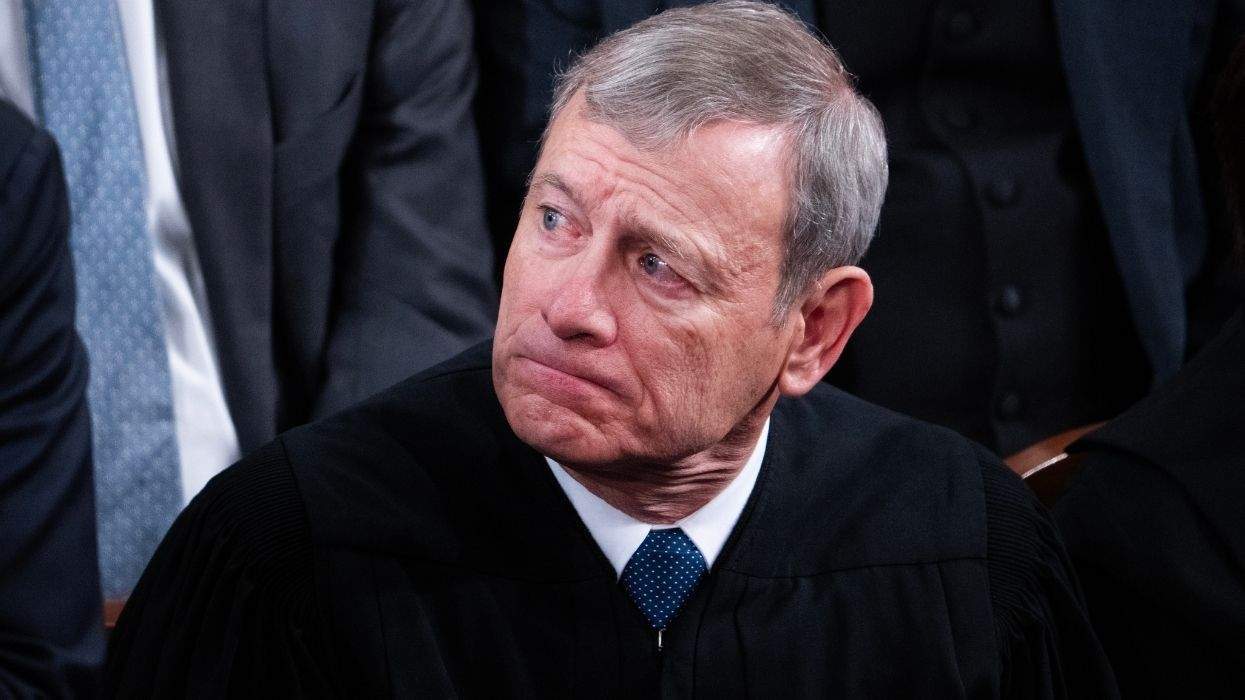
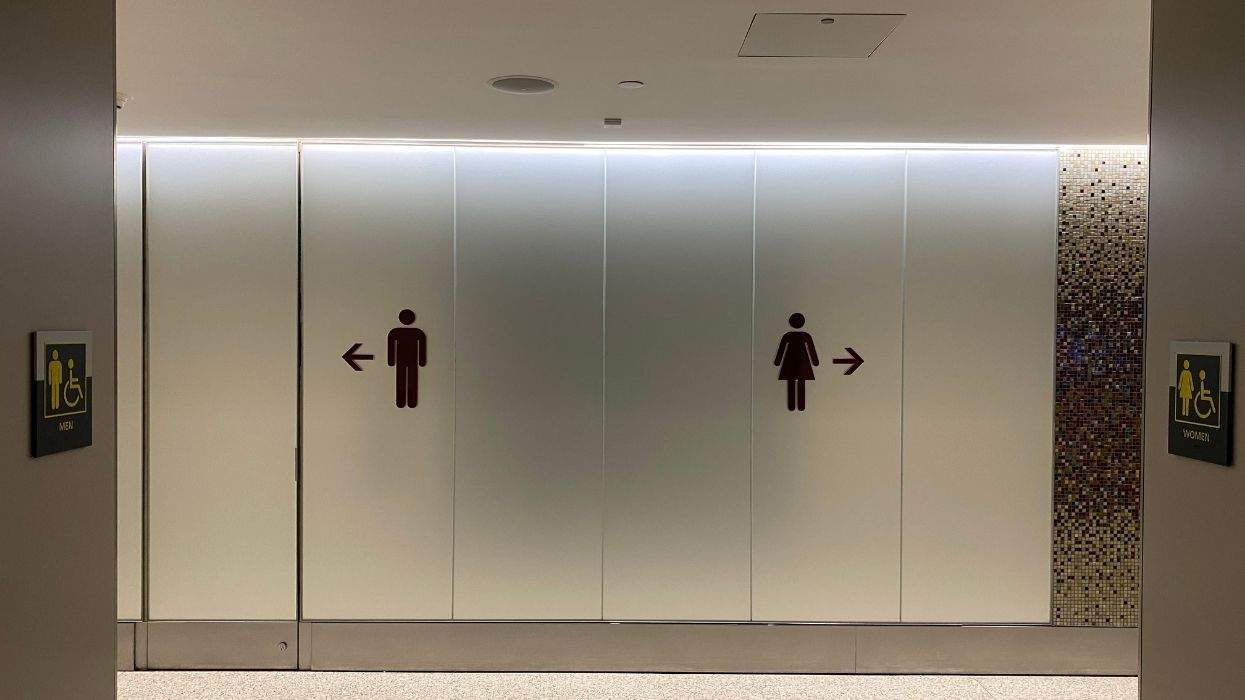
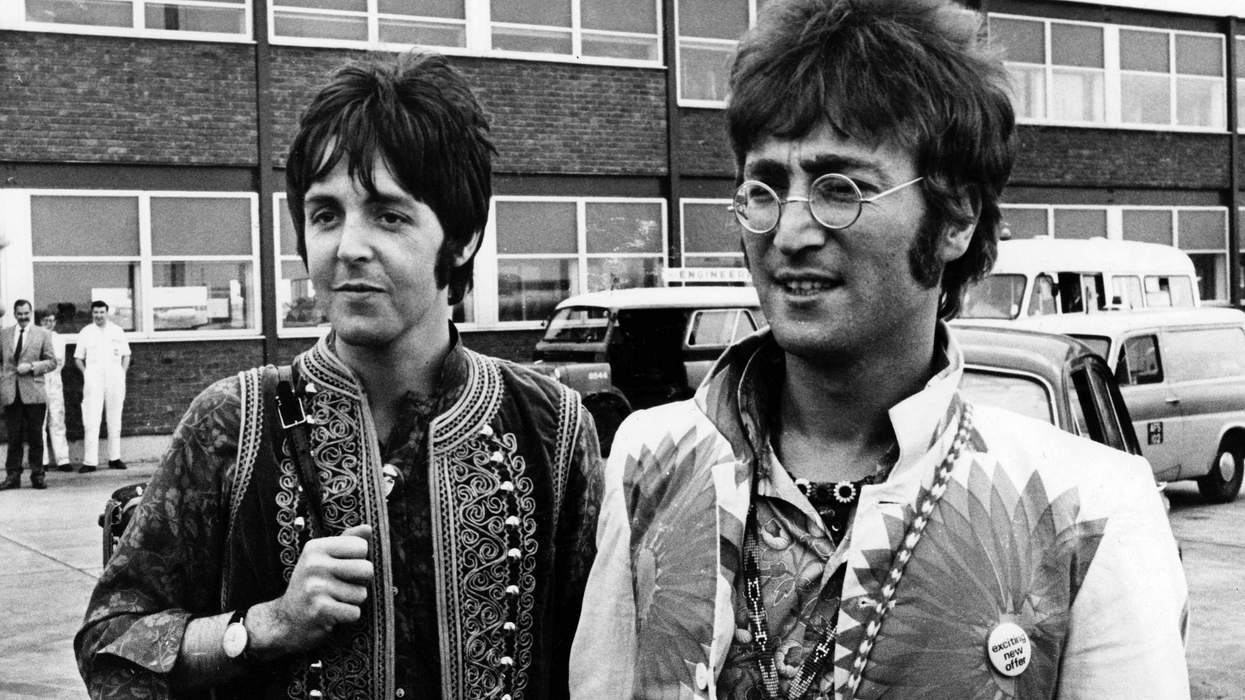
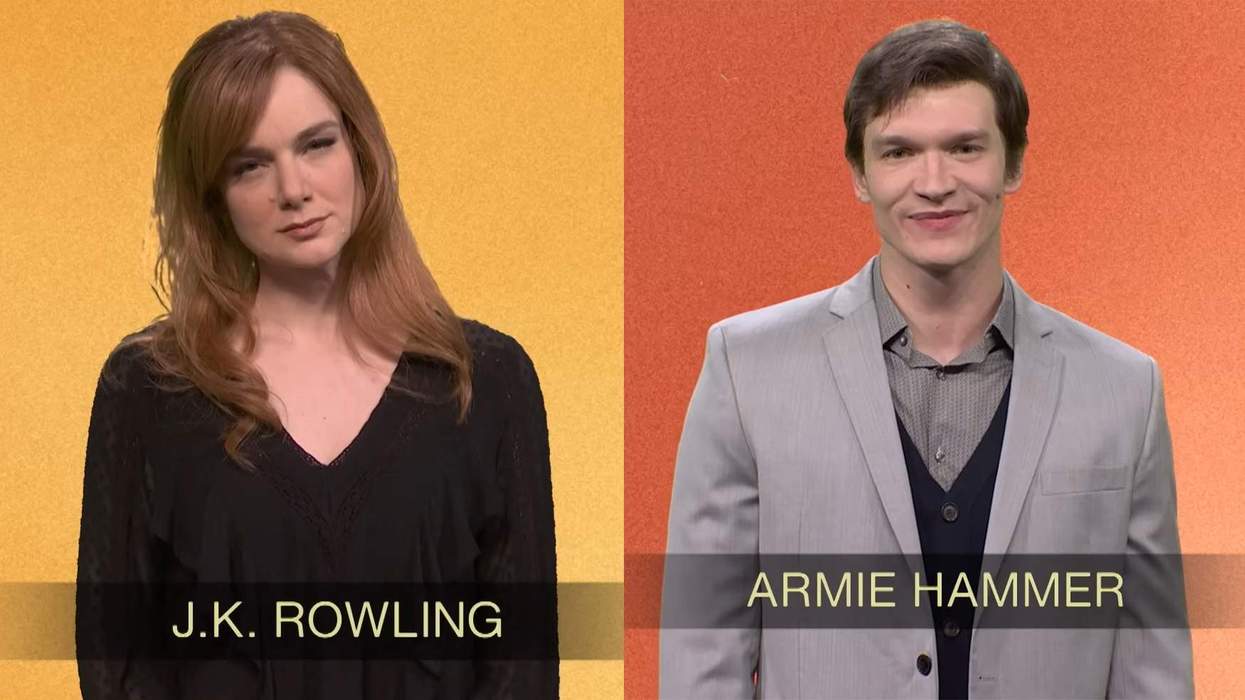








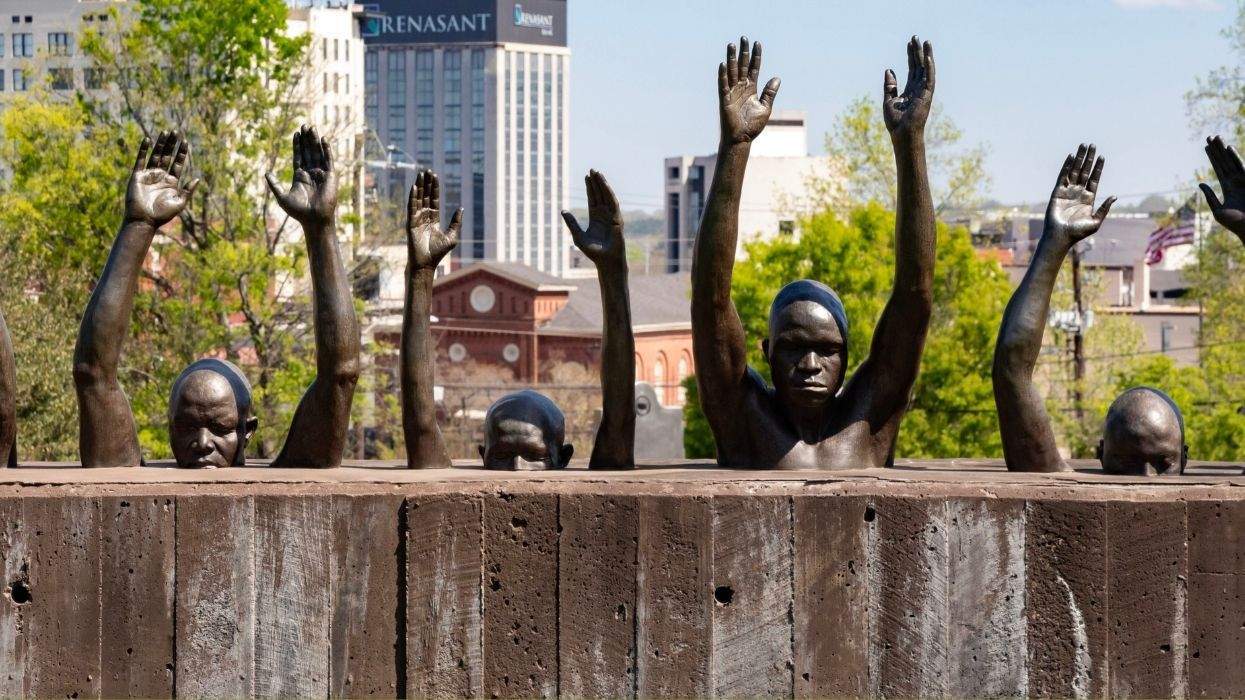

Charlie Kirk DID say stoning gay people was the 'perfect law' — and these other heinous quotes
These are some of his worst comments about LGBTQ+ people made by Charlie Kirk.